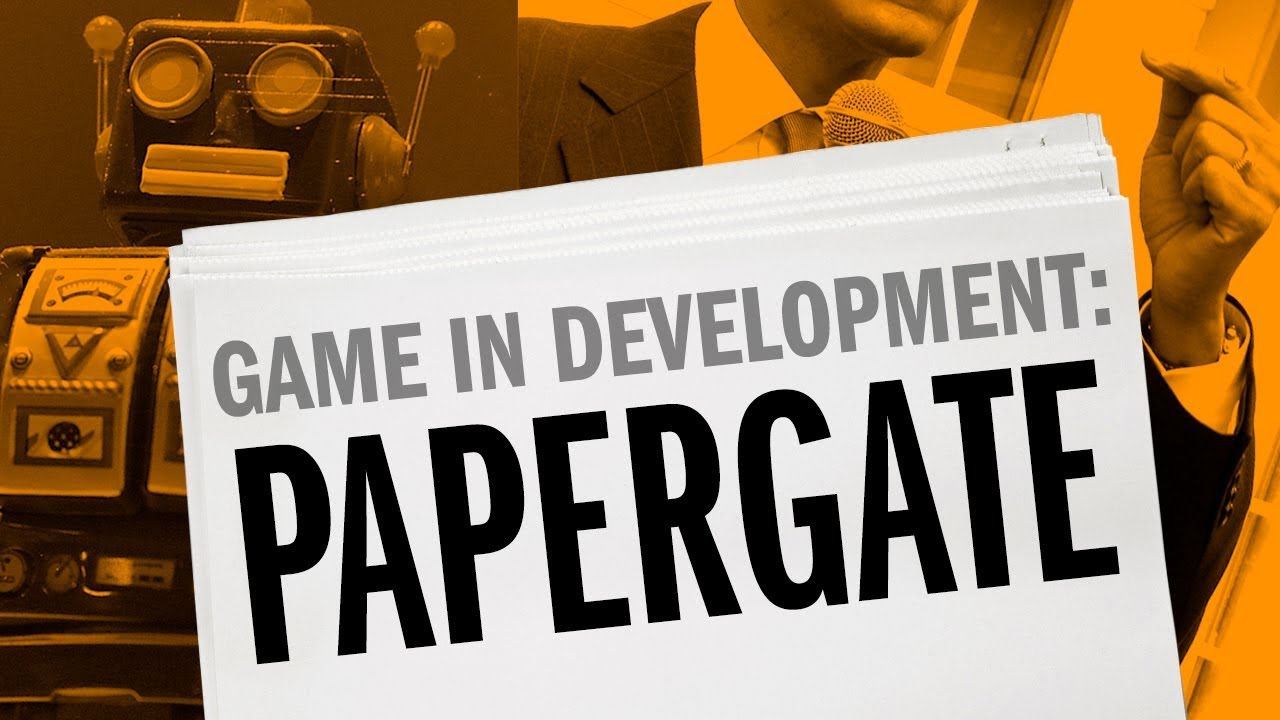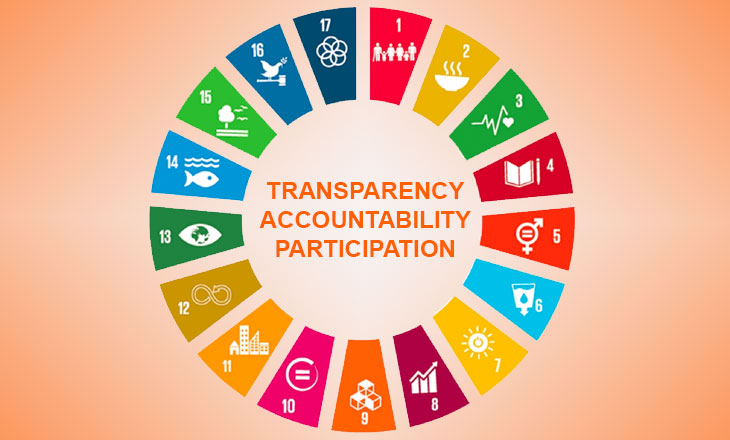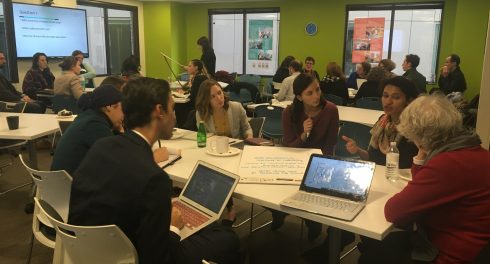Highlight:
- Papergate
- Red card?
- Brush up your listening skills
- Power points to power plays
- Structurally biased
- TAI Spotlight: Strengthening Communications in the Transparency Accountability and Participation Field
Papergate

Image by Daniel Solis via Youtube
A new World Bank commissioned paper reveals how 7.5% of aid in the 22 most aid-dependent countries goes missing while offshore accounts of elites grow. The implication being that local officials steal funds and stash it abroad. Attracting more attention than the findings themselves is the purported attempt to censor its publication. Stefano Feltri decries that effort as counter to purpose while The Economist ties the abrupt resignation of Penny Goldberg, chief economist of the World Bank, to the attempt to block publication.
Speaking of secrecy and offshore wealth, the US has overtaken Switzerland in the latest Financial Secrecy Index ranking of countries most complicit in helping individuals to hide their finances from the rule of law – but Cayman has leapfrogged both to rank as the worst offender. No surprise the EU listed Cayman Islands as one of the of non-cooperative tax jurisdictions, as they failed to comply with the required standards within the deadline. Other new entrants on the list are Palau, Panama, and Seychelles.
Meanwhile, Canada, another listed tax haven country, launched a public consultation on beneficial ownership transparency. Transparency International Canada and coalition partners are among those leading the charge on submissions as part of their push to end “snowashing” in Canada.
Red card?

Image credit: Skysport
An audit of the Confederation of African Football by PwC has found misappropriation of funds and an acute lack of documentation that forced the firm to reconstruct a paper trail. Will there be a consequence? The world governing body, FIFA, has declined to comment.
In a more encouraging sign of follow up, Lithuanian authorities have used the Paradise Papers to identify a stolen $45 million, and are working to recover it from failed bank owner Vladimir Romanov and associates.
We’re late to the game on this, but interested to read Paul Polman, Chairman of the International Chamber of Commerce and former Unilever CEO, warning against a race to the bottom on corporate tax (see his introduction to the 2019 Tax Transparency Benchmark comparison of Dutch firms).
Essential Listening:
What is really happening in Chile with social breakouts and why are the budget and fiscal policies at the core of the national debate? Listen to audio interview with Jeannette von Wolfersdorff, Director of the Fiscal Observatory Foundation of Chile.
Brush up your listening skills
There was lots of discussion of how TAI members can best support organizational effectiveness of grantees at our recent member retreat, so we are interested to read Vimmi Malhotra and Hisham Mundol’s account of how listening to grantees helped their organization rethink how it supports organizational development. Valerie Threfall emphasizes the importance of funders turning the rhetoric of listening into meaningful practice. Of course, it helps to be able to process what one hears. Wondering what it means to be a sense making organization? Cindy Suarez has an answer.
Want more on donor thinking? Check out the new podcast on values-based philanthropy and read how Laurene Powell Jobs’s Emerson Collective gives money and why they believe in multi-year core funding. Also, check out Inside Philanthropy’s list of 30 progressive funders behind social justice and this list of philanthropic communities of practice by Rose Longhurst.
Given recent Weekly coverage of what makes for effective INGO and local CSO partnerships, we were glad to come across new synthesis resources from the Stopping as Success initiative including guidance on how to foster local leadership throughout the INGO project cycle.

ESSENTIAL READING: 11 Trends in Philanthropy for 2020: Anticipate and Embrace What’s Next
For the fourth year in a row, experts and thought leaders from the Dorothy A. Johnson Center for Philanthropy explore 11 trends in philanthropy for 2020 to help you anticipate and embrace what’s next.
Power Points to Power Plays
Want to influence policy makers? Heather Marquette urges resorting to Power Point. In a new blog, Heather also urges us to unpack the “political will” black box if we really want to understand opportunities for change. She addresses this in the context of the extractives sector where follow through on reform commitments is often lacking. Undaunted, Zimbabwe Environmental Law Association (ZELA)’s Deputy Director, Shamiso Mtisi echoes Joyce Nyamukunda Machiri (see our previous Weekly) on the need for more transparency and accountability in Zimbabwe’s mining sector.
Meanwhile, the UN Environmental Programme outlines ways that extractives companies can support the Sustainable Development Goals. Practical actions include promoting social cohesion, inclusiveness & economic progress among low-income countries and the most vulnerable groups of the population.
Structurally biased
Kenya’s High Court recently blocked the country’s digital id initiative from moving forward as planned – it seems the judiciary are one of the few to ask awkward questions. Vivek Maru, Laura Goodwin, Aisha Khagai, and Mustafa Mahmoud of Namati argue that more should be. They make the case that digital id systems exacerbate systemic bias – cutting off people from society and rights. “If a government is going to transition from an analog system to a digital one, it needs to address exclusion before doing so.”
Europe has published a digital strategy and whitepaper to ensure responsible data use, including consumer protection rules and regulations for Artificial Intelligence. Natasha Lomas thinks this could power a new generation of data-driven regional competitiveness against China and the United States. Dennis Whalen notes the increasing level of risks around cybersecurity and data governance plus skills needed by board committees to ensure full compliance with the General Data Protection Regulation and California Consumer Privacy Act (CCPA). Stephen White’s suggests how fintech can stay in control of data governance and cybersecurity, while Sudipto Ghosh offers thoughts on compliance and best practice under the CCPA.
Interested in creating, financing and managing public spaces? Check out this report on how you can unlock the hidden wealth of cities to create better public spaces.
TAI Spotlight: Strengthening Communications in the Transparency Accountability and Participation Field

Image credit: Global Integrity
Strengthening Communications in the Transparency Accountability and Participation Field |Transparency and Accountability Initiative (TAI)
The world of transparency, participation and accountability is awash in papers, briefings, and reports. We tend towards the “wonky.” TAI Communications fellow, Oluwabusayo Sotunde, reflects on attempts to strengthen communication and engagement.
Charity won’t fix inequality. Only structural change will | Ford Foundation
President of the Ford Foundation, Darren Walker challenges those with power and privilege to embrace sacrifice and to stand with the leaders at the frontlines doing transformative work. “Restoring unity and trust will take more than generosity and good will,” says Darren. “Charity, while wonderful, ameliorates the symptoms of inequality, but it does not address its root causes.”
Top 100 Proposals for $100 Million Grant | MacArthur Foundation
MacArthur announced the highest-scoring proposals, designated as the Top 100, in its 100&Change competition for a single $100 million grant to help solve one of the world’s most critical social challenges. Each proposal was evaluated using four criteria: impactful, evidence-based, feasible, and durable. MacArthur’s Board of Directors will select up to 10 finalists from these high-scoring proposals this spring.
Dr. Jane Flegal joins the Hewlett Foundation | Hewlett Foundation
Dr. Jane Flegal will be joining the foundation’s Environment Program as program officer on U.S. climate and clean energy on March 2, 2020. Prior to joining the Foundation, Jane served as the senior program officer for the Environment program at The Bernard and Anne Spitzer Charitable Trust in New York, where she developed and executed a grantmaking strategy on US climate.
Luminate at the SXSW Conference | Luminate
Join Luminate’s Managing Directors Nishant Lalwani and Martin Tisne at the SXSW Conference & Festivals from March 13-22, 2020 in Austin, Texas. Martin will be speaking on a session entitled ‘The Data Delusion: Reclaim Your Collective Rights’ while Nishant will talk about what an ever-changing media landscape will mean for journalism in the next 10 years.
CALL
- Job postings at Ford Foundation – Ongoing
Job postings at Luminate – Ongoing - BetterTogether Challenge for innovators – Ongoing
Democracy Fund: Sr. Associate, Strategy & Learning – Ongoing - Oxfam: Extractive Industries Regional Advisor – Ongoing
- Funding opportunity for fostering safety and resiliency for CSOs in MENA – Feb 28, 2020
- 2020 New Media Ventures Open Call – March 2, 2020
- Hewlett Foundation Call for Expressions of Interest (EOI) to review its grantmaking impact in Mexico – March 18, 2020
- Co-Impact systems change grants (round three) – March 31, 2020
- Call for suggestions on Humanitarian and Development Data Forum agenda – May 2020
Proposal Submission for the 2020 Summer Evaluation Institute – June 7-10, 2020 - Amartya Sen Essay Contest 2020: Illicit financial flows – August 31, 2020
CALENDAR
- Feedback+San Juan: Listening Reimagined – February 26-28, 2020
- AI Observatory Launch – February 27, 2020 (OECD Conference Center, Paris)
- How is Life in 2020? Better Life Initiative: Measuring Well-Being and Progress – March 9, 2020 (OECD Conference Center, Paris)
- The Data Delusion: Reclaim Your Collective Rights – March 15, 2020
- Media and democracy: the way forward – March 20, 2020 (Rue des Tanneurs 60A, Brussels)
- The Impacts of Civic Tech Conference (TICTeC) – March 24 – 25, 2020 (Reykjavik, Iceland)
Register for the 2020 OECD Global Anti-Corruption & Integrity Forum – 25-26 March 2020 (Paris, France)
EGAP Learning Days workshop – March 30-April 3, 2020 (Addis Ababa, Ethiopia) - Shaping the Future Forum 2020 – April 22 & 23, 2020 (Washington, DC)
- Frontiers of Social Innovation: People, Power & Resources: The Redistribution Wave – 12-14 May 2020 (Stanford University, California, USA)
Transparency International: 19th International Anti-Corruption Conference – June 2 – 5, 2020 (Seoul, South Korea)
Human Rights Litigation Summer School at Berlin, Germany – June 8-12, 2020
Women and Girls Africa Summit – June 9-12, 2020 (Durban, South Africa)
RightsCon 2020 – June 9-12, 2020 (San Jose, Costa Rica)
Humanitarian and Development Data Forum – November 2-4, 2020 (Chambery, France)
International Open Data Conference –November 18-20, 2020 (Nairobi, Kenya)


